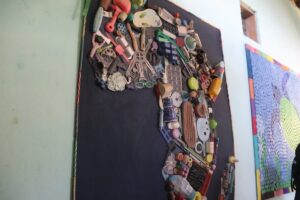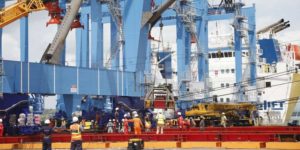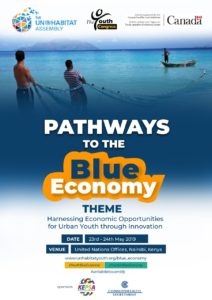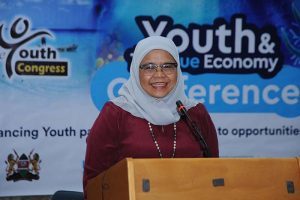
EcoWorld Waste Recycling Workshop in Watamu, Malindi with Mathare Youth
Watamu, Malindi became a city where sparks of waste management is becoming one of its essence. A recent development by 3 different but collaborated groups
The blue economy has a huge potential to drive sustainable growth. … A new joint initiative, namely ‘Go Blue‘, will contribute to unlocking precisely these potential sea-land opportunities in coastal urban centres by promoting sustainable economic growth, sea-land development and maritime law enforcement..
Ten percent of the world’s population depends on fisheries for their livelihoods, and 4.3 billion people are reliant on fish for 15 percent of their animal protein intake, Graziano da Silva told participants
The green economy is defined as an economy that aims at reducing environmental risks and ecological scarcities, and that aims for sustainable development without degrading the environment.
“The blue economy concept seeks to promote economic growth, social inclusion and preservation or improvement of livelihoods while at the same time ensuring environmental sustainability—all issues integral to the 2030 Agenda. So, to build a blue economy, we will need to put sustainability at its centre.
The ‘Blue Economy‘ is an emerging concept which encourages better stewardship of our ocean or ‘blue‘ resources. … Similar to the ‘Green Economy‘, the blue economy model aims for improvement of human wellbeing and social equity, while significantly reducing environmental risks and ecological scarcities.

Watamu, Malindi became a city where sparks of waste management is becoming one of its essence. A recent development by 3 different but collaborated groups

Efforts by Kenya to tap the unexploited potential of the maritime industry, commonly known as the ‘Blue Economy’, came into sharp focus recently when a

Event Title Pathways to the Blue Economy – Harnessing Economic Opportunities for Youth through Innovation (Pathways) Event Type Organization(s) hosting UN-Habitat Start and

Nairobi, 27 November 2018 – Speaking on the second day of the Sustainable Blue Economy Conference, UN Under-Secretary-General and Executive Director of UN-Habitat, Ms. Maimunah
Criterios de selección
Todas las edades hasta los 24 años;
Si tienes menos de 18 años, por favor proporciona los detalles de contacto de un tutor o acudiente.
Proceso de Envío
Por favor utiliza este enlace para inscribirte en el desafío;
Familiarízate con los beneficios para la salud del espacio público y de Minecraft;
El desafío comienza desde el 1 de abril;
Las postulaciones serán aceptados desde el 15 de mayo hasta el 31 de mayo.
Requisitos de Envío
Tu postulación debe incluir:
Un archivo comprimido del mundo de Minecraft (máx. 500mb);
Una breve descripción de cómo tu idea hace que los espacios públicos sean más saludables y disfrutables para la juventud (máx. 400 palabras/todos los idiomas).
Criterios del Proyecto
Nuestros jueces buscan ideas que sean: innovadoras, transformadoras e inclusivas;
El proyecto que sobresalga en todos los criterios ganará el gran premio.
Proceso de Evaluación
Primera ronda: se seleccionarán 10-15 postulaciones;
Segunda ronda: los proyectos seleccionados presentarán sus iniciativas a los jueces.
Premios
El premio principal es de $5,000 para la implementación de la solución ganadora.
Términos y condiciones
Al participar en el desafío, otorgas a ONU-Hábitat el permiso para que las imágenes y/o grabaciones puedan ser utilizadas en las cuentas de redes sociales, mercancía de marca, sitio web de ONU-Hábitat y UN Habitat Yout h y pueden ser compartidas con medios de comunicación de prensa. De vez en cuando, los materiales también pueden ser utilizados por sus socios.
¿Todavía tienes preguntas? Contáctanos a través de unhabitat-urbanhealth@un.org.